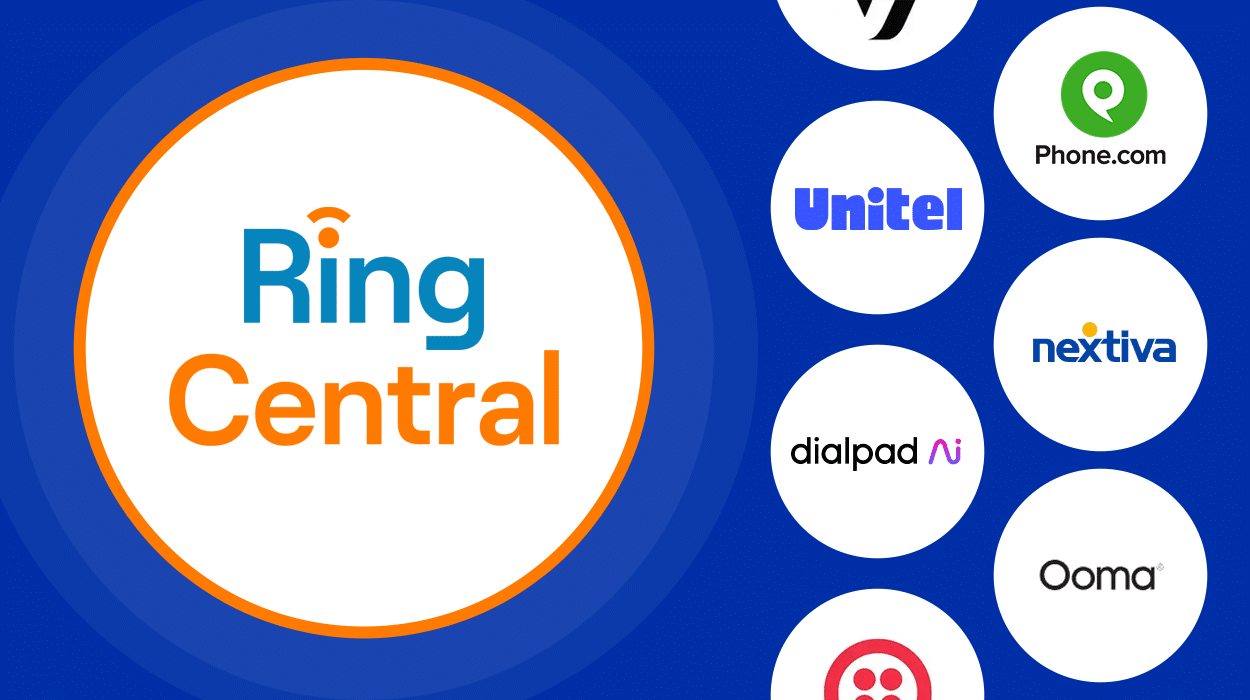Looking for a RingCentral alternative that’s better suited for your business? Whether a small shop or a growing business, you’ve landed in the right spot.
Navigating the maze of phone service providers can be overwhelming, but we’re here to simplify it. We’ve scrutinized the top 5 RingCentral competitors, including Unitel, Dialpad, Nextiva, Phone.com, and Ooma, focusing on:
- Product: Who’s it for, and what makes it different?
- Pricing: Clear, no-nonsense breakdown of plans.
- Reviews: Honest ratings from real users.
Plus, this isn’t just a one-time competitor comparison. Our team updates pricing and reviews monthly to ensure you get unbiased and up-to-date information.
Ready to discover the phone systems that RingCentral doesn’t want on your radar? Let’s dive in!
Here are the top 5 RingCentral alternatives of 2024:

1. Unitel
Product: The Built for Small Business Alternative
Unitel is tailored for busy small business owners and first-time entrepreneurs. With Unitel, you get a local or toll free number you can manage online with a work-from-anywhere virtual phone system. So, no matter where or what you’re doing, you can handle business calls like a boss.
What makes Unitel different from RingCentral?
While RingCentral has more bells and whistles than a NASA space shuttle, Unitel is priced and designed for everyday small business owners who don’t have time for overcomplicated call center software. Unitel lets you stay connected and sound professional, running your business from your cell phone.
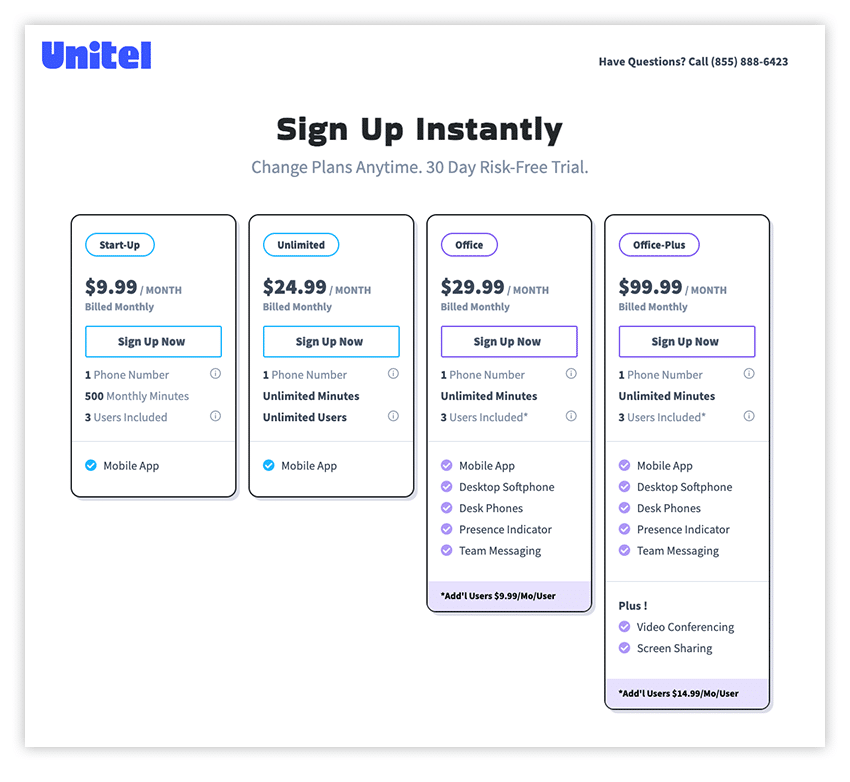
Pricing: Unitel offers four plans
- Start-Up – $9.99/mo.
- Unlimited – $24.99/mo.
- Office – $29.99/mo.
Reviews: 4.5/5 cumulative rating
- 4.8/5 of 160 reviews on Trustpilot
- 4.3/5 of 27 reviews on Capterra
- 4.6/5 of 5 reviews on G2

2. Dialpad
Product: The Better AI Alternative
Dialpad is a cloud-based phone system that integrates with ChatGPT to deliver features that save you time after a call or meeting. It includes an AI-generated call summary, call purpose, call outcome, action items, and the ability to automatically generate follow-up messages for you.
What makes Dialpad different from RingCentral?
RingCentral and Dialpad are in a race to incorporate AI into their business phone systems, and it looks like Dialpad is in the lead. Not only has Dialpad figured out how to add tremendous value using AI, but it’s also less expensive than RingCentral. That’s hard to beat.
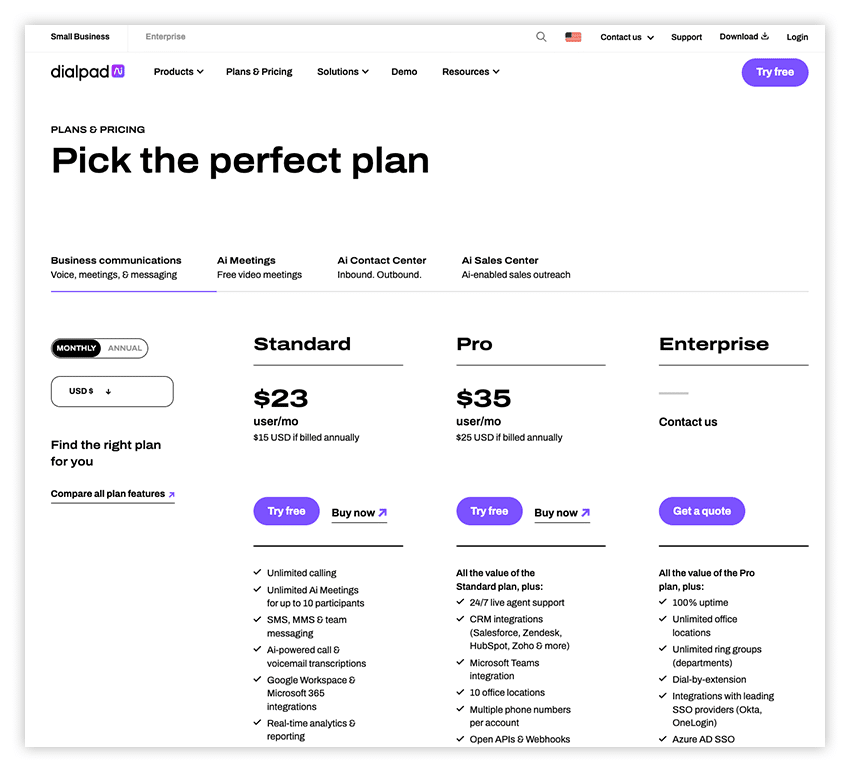
Pricing: Dialpad offers three plans:
- Standard – $23/user/mo.
- Pro – $35/user/mo.
- Enterprise – must get a quote.
Reviews: 4.4/5 cumulative rating
- 4.6/5 of 1,464 reviews on Trustpilot
- 4.3/5 of 478 reviews on Capterra
- 4.4/5 of 1,458 reviews on G2
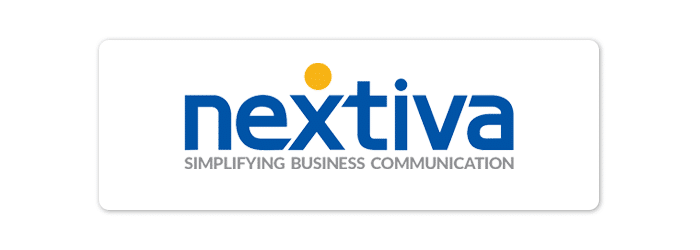
3. Nextiva
Product: More Comprehensive Alternative
Nextiva stands out for its all-encompassing approach to business communication. Offering VoIP services, CRM features, and advanced analytics. It’s a top choice for businesses seeking a comprehensive, integrated communication platform.
What makes Nextiva different from RingCentral?
Nextiva is a more all-in-one solution than RingCentral. With Nextiva, you get all your business communications through one collaboration tool to get more done using fewer apps.
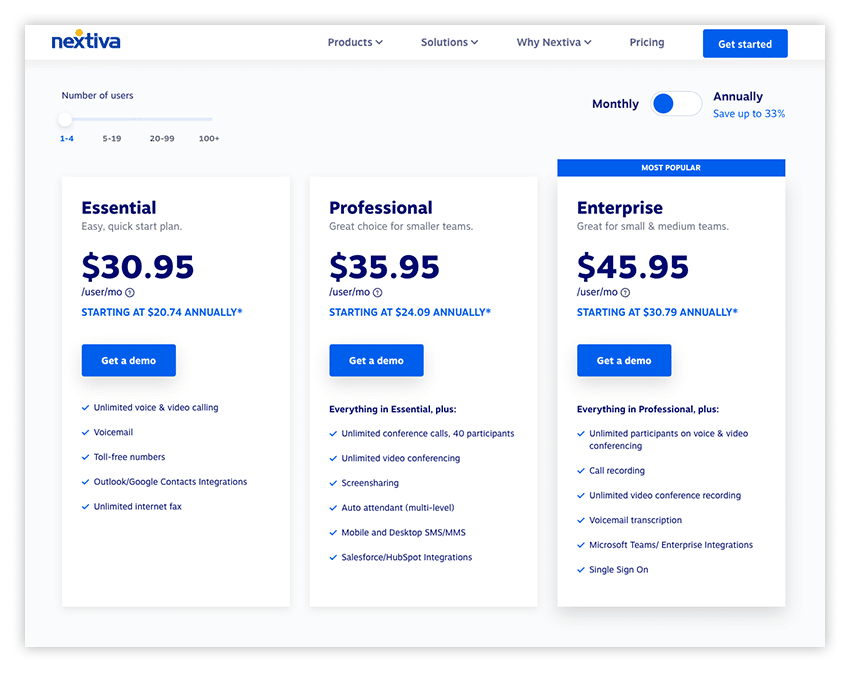
Pricing: Nextiva offers three plans
- Essentials – $25.95/user/mo.
- Professional – $30.95/user/mo.
- Enterprise – $40.95/user/mo
Reviews: 4.5/5 cumulative rating
- 4.6/5 of 2,322 reviews on Trustpilot
- 4.5/5 of 432 reviews on Capterra
- 4.5/5 of 2,752 reviews on G2
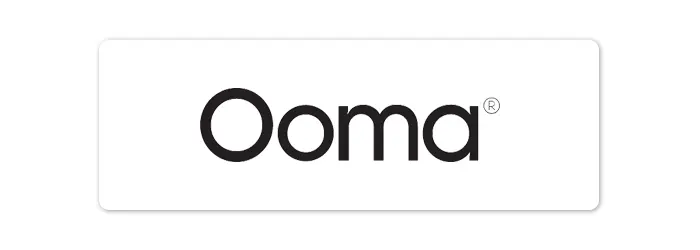
4. Ooma
Product: The Less Complicated Alternative
Ooma provides basic business VoIP services. Ooma is worth a look if you’re looking for simplicity and affordability. They’ll ship you a desk phone, and you plug it in and start taking business call. You get all the business VoIP features you need and none you don’t.
What makes Ooma different from RingCentral?
Sometimes, less is more. And if that’s what you’re looking for, Ooma is a better choice than RingCentral. On the downside, Ooma gets complaints about their outsourced overseas customer support like RingCentral.
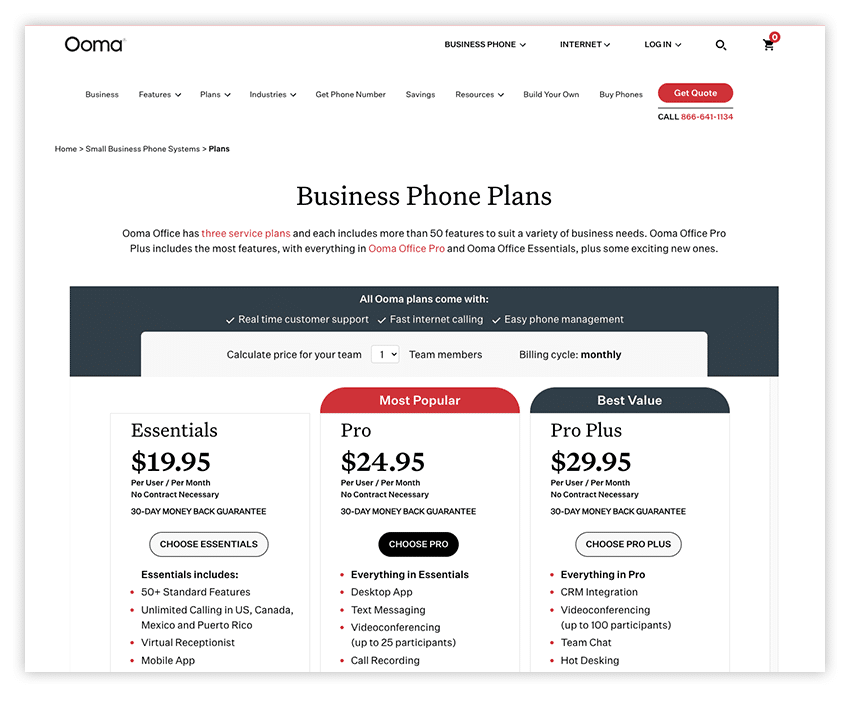
Pricing: Ooma offers three plans:
- Essentials – $19.95/user/mo.
- Pro – $24.95/user/mo.
- Pro Plus – $29.95/user/mo.
Reviews: 3.8/5 cumulative rating
- 2.4/5 of 1,513 reviews on Trustpilot
- 4.5/5 of 169 reviews on Capterra
- 4.5/5 of 87 reviews on G2
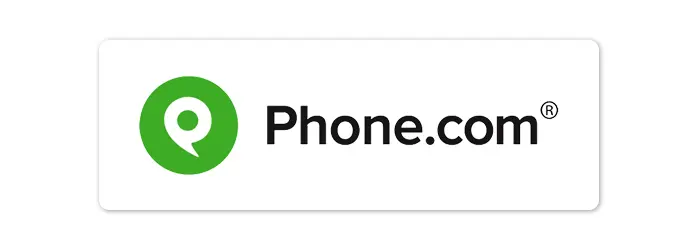
5. Phone.com
Product: The Cheaper Alternative
Phone.com gives you the voice, video, text, call management, and collaboration features of an enterprise phone system without the cost. What it lacks in ease of use, it makes up for in customer support offering live support 24 x 7 via phone, support ticket, or chat.
What makes Phone.com different from RingCentral?Phone.com has been described as the poor man’s RingCentral. It’s cheaper and basically all the same features. And although it may be a little more clunky, it’s a lot more affordable.
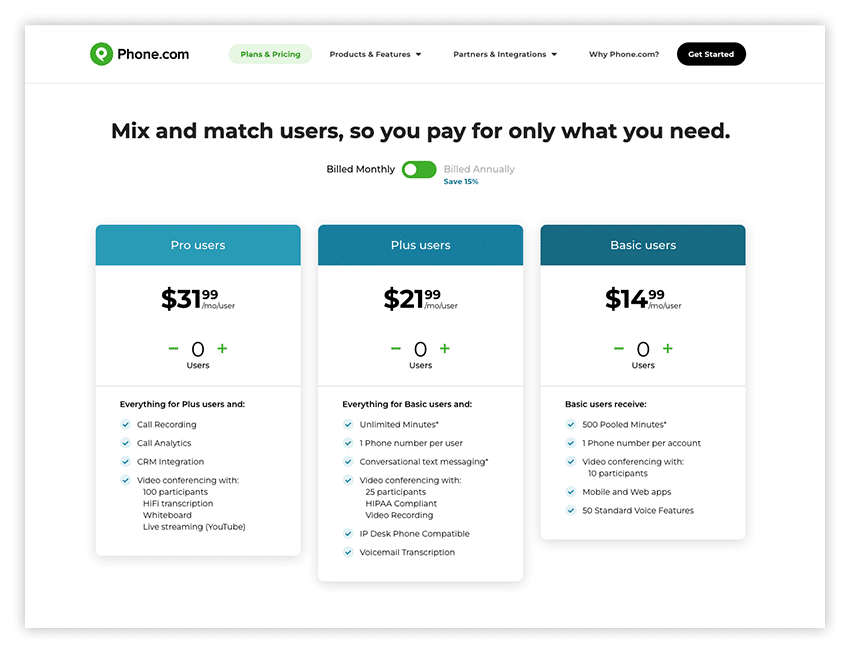
Pricing: Phone.com offers three plans:
- Basic – $14.99/user/mo.
- Plus users – $21.99/user/mo.
- Pro users – $31.99/user/mo.
Reviews: 2.9/5 cumulative rating
- 1.8/5 of 44 reviews on Trustpilot
- 3.8/5 of 64 reviews on Capterra
- 3.3/5 of 24 reviews on G2


